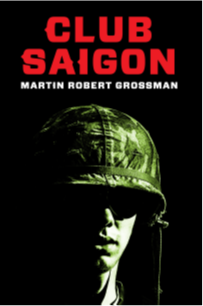
Club Saigon
It all started in 1969 when Staff Sergeant Jerry Andrews of Special Forces A-Detachment 255 brought six of his team members back to Pleiku in body bags—It was the longest chopper ride of his life.
Twenty-two years later, Jerry is a middle-aged police detective that has been assigned to a mysterious string of brutal serial killings in the “Little Saigon” section of Los Angeles. The similarities of the killings bring back ghastly memories of Jerry’s three tours in the jungles of the central highlands during the Vietnam War. All the victims are Vietnamese. All the victims have been mutilated in a similar fashion. There is no doubt in Jerry’s mind that the murders are linked, somewhere, to his past—a past where he’d fought side by side with his U.S. Army, Green Beret, brothers in the jungles of Vietnam.
Colonel Vinh Ho and his family escaped Vietnam in the airlift of 1975. They were taken out by chopper just as the American Embassy fell into the hands of the North Vietnamese Army and the Communist Government of Ho Chi Minh. Vinh Ho had political clout in the South and friends in the north, as well as being a CIA double agent. During the war years, he’d made many political contacts on both sides of the pond and amassed enormous wealth—wealth that he spread over Vietnam, Cambodia, and Laos. Unbeknownst to the American government that supported him, he had parlayed his ill-gotten gains into a huge illicit drug business operating out of the Golden Triangle in Southeast Asia. Vinh Ho personally headed up his operation and, with the help of an ex-patriot American, ruled it with an iron fist.







